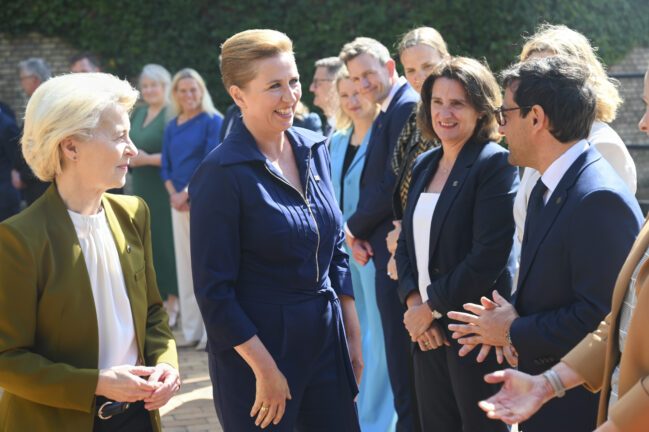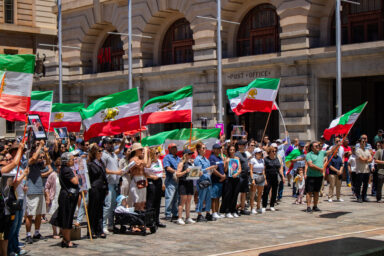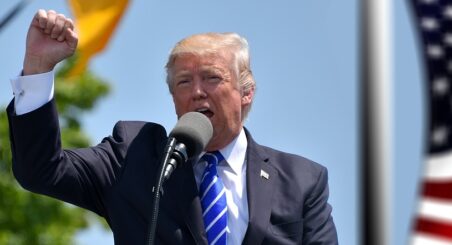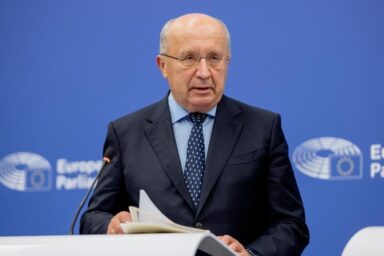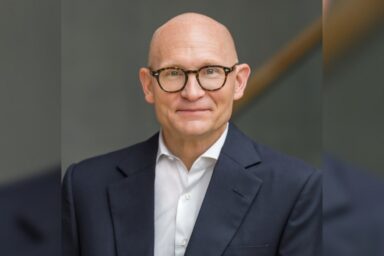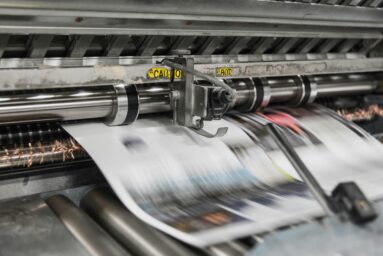Ukraine was front and centre at Thursday’s joint press conference of European Commission President Ursula von der Leyen and Mette Frederiksen, Prime Minister of Denmark.
Ursula von der Leyen, European Commission President, visited Denmark on the occasion of the start of the country’s Presidency of the Council of the European Union. Mette Frederiksen, the country’s prime minister, welcomed her alongside the President of the European Council António Costa and Volodymyr Zelensky, President of Ukraine, in the picturesque city of Aarhus.
At the joint conference after the meeting of the two executive leaders, Ms von der Leyen spoke about the need to ramp up European defence spending and European joint procurement, reform the bloc’s regulatory and other burdens to improve its competitiveness, and to improve its worldwide trade relations.
Trade talks: Nothing off the table
On the on-going negotiations with the US, she said: “I just want to say we are ready for a deal. We want a negotiated solution. But you all know that at the same time, we’re preparing for the possibility of no satisfactory agreement. This is why we consulted on a rebalancing list, and we will defend the European interest as necessary. In other words, all instruments are on the table.”
On migration, the EC President said the EU just needs to implement its new rules on asylum and migration, and should focus on making “progress on our return proposal on safe third countries concept and the safe countries of origin.”
You might be interested
Finally, on Ukraine, she says “achieving a just and lasting peace in Ukraine remains the key priority, because Ukrainians are fighting not just for their sovereignty, but also for us, for our freedom, for our values, and we know that we can never match their sacrifices. What we can do is stand united, determined and resolute by Ukraine, not just for as long as it takes to secure peace, but to give them the chance, the opportunity to have the country they are dreaming of, and that is a country that masters its own destiny, its own future, a country that is member of the European Union.”
‘Ukraine belongs in the EU’
While Ms Frederiksen spoke of similar priorities, she accentuated them differently. Unlike Ms von der Leyen, who tends to resort to legalese, the Danish PM minced no words. “I don’t for a second believe that Vladimir Putin wants peace,“ she said forcefully. She reiterated her earlier vows to back Ukraine in its quest to join both the European Union and Nato despite internal opposition in both organisations.
“Ukraine belongs in the EU. It is in the interest of both Denmark and Europe. Therefore, the Danish Presidency will do everything we can to help Ukraine on its path towards EU membership,” Ms Frederiksen said. “We must partly strengthen Ukraine. Partly weaken Russia. The first thing we do is increase military support. Ukraine is crucial for Europe’s security,” Ms Frederiksen said in a marked contrast to the more reserved Ms von der Leyen.
The Danish model
Increased military support, cooperation with the Ukrainian defense industry and new sanctions against Russia were the focus of subsequesnt talks between EU officials and Mr Zelensky. It comes after the Trump administration decided to halt some arms shipments the US once promised to help Kyiv fight off Russia’s invasion.
I don’t for a second believe that Vladimir Putin wants peace. Mette Frederiksen, Prime Minister of Denmark
Ms Frederiksen recommended to other EU member countries either to buy weapons and give them to Ukraine, or to invest in the “extremely effective“ Ukraine defence industry. The latter approach has entered European leaders’ vocabulary as “the Danish model“ As Ukraine’s military production is running at a mere 60 per cent of its capacity, a lot of room for improvement is available.
Ms Frederiksen’s government has already invested in Ukraine’s defense industry and invited Ukrainian companies to set up shop on safer ground in Denmark. Her set of priorities appeared to resonate with the press crowd in attendance more naturally than those of Ms von der Leyen. While the Q&A session at the press meeting featured numerous questions, all but one concerned Ukraine.
No mention of no-confidence
The EC President seemed at times relieved that the meeting did not mention her recent mishaps, leading to a rare parliamentary revolt in the form of a vote of no-confidence. The Parliament is set to debate the motion—which cleared the Council of Presidents the day before—this coming Monday, and to vote on it on Thursday.
Ms von der Leyen can count on the Parliament not dethroning her. However, the motion represents an unusually high level of dissent, partially weakening her Commission’s mandate to pursue its agenda, which pretty much all factions—albeit for radically different reasons—often perceive as divisive.
